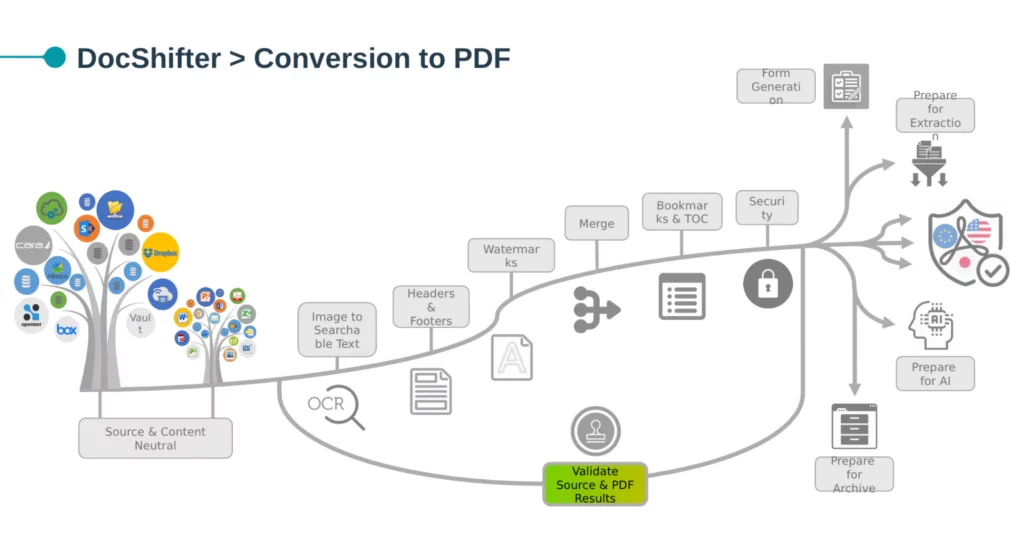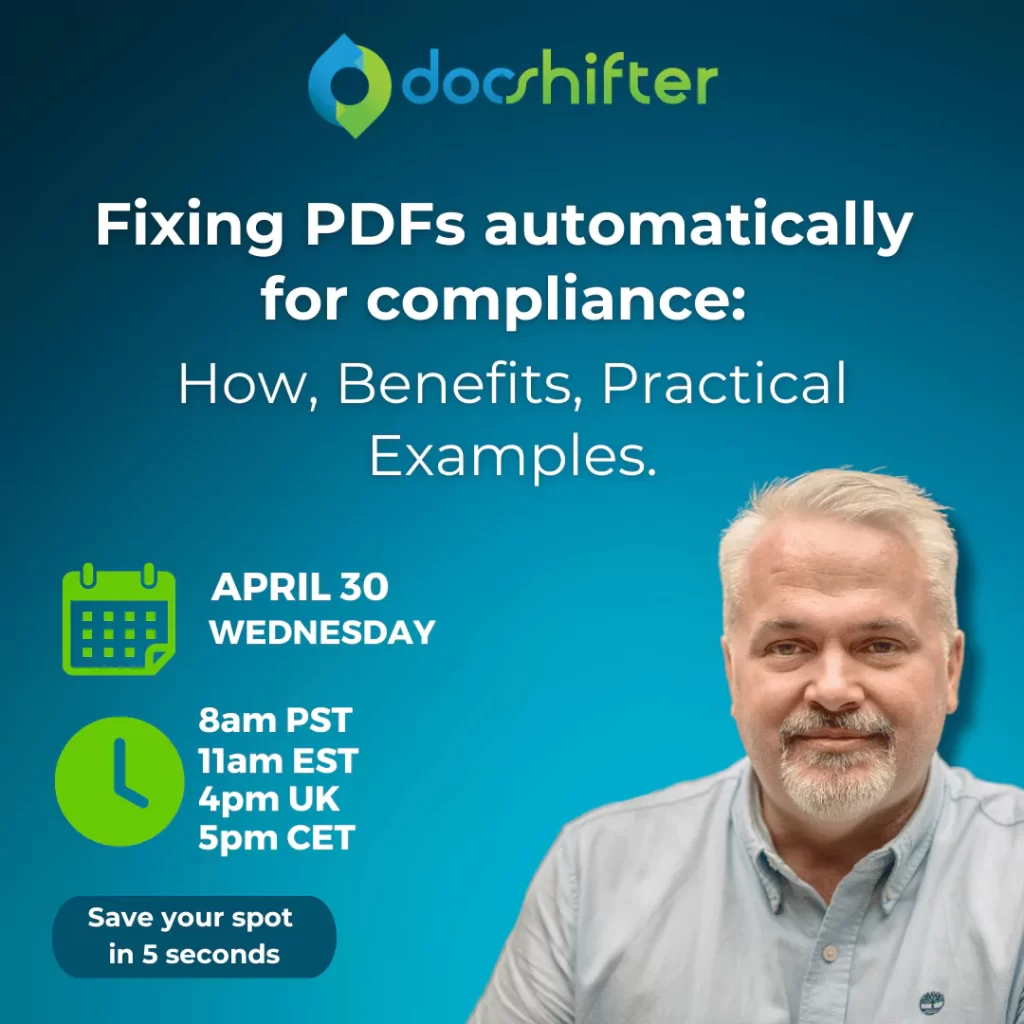
What is Document Rendering, and what can it mean for your business?
-
By Othmane Achir
- 4 minutes read
Many elements can be added to PDF documents to simplify navigation. These elements can include headers and footers, table of contents, watermarks, bookmarks, table of tables or table of figures, OCR, fonts, watermarks, overlay, and many more.
In highly regulated industries such as finance, or life sciences, PDF documents need to contain some of these elements for compliance.
Organizations still rely on manual work to create and enrich PDF documents. This is a time-consuming and complex process. If you are in a heavily-regulated industry, manual steps also increase your risk of non-compliance.
To avoid risks, high costs, and manual work, your ideal document-to-PDF conversion process takes any source document (Microsoft Word, Excel; scanned images, text files, etc.), converts it to PDF, and fully enriches it based on your internal or external requirements, without any manual intervention.
How does DocShifter’s approach automate many of these steps, and assure compliance?
Here are 6 examples.
- Create text-searchable documents through Optical Character Recognition (OCR)
Document conversion can also include a step that automatically creates a document that is text searchable. So if your original content is a scanned image, and it has no searchability, you can make it text searchable to simplify reviewing. And it makes finding text in documents a lot easier!
- Add headers and footers
Add elements such as headers and footers. In case you have scanned content, you may want to apply a header and footer to give it some context as well.
- Add watermarks
Add watermarks to your document at any specific lifecycle stage of the document. For example, when it is under review, or when it has been finalized and approved.
- Merge multiple documents
Sure, you can wait to do this at the very last moment. And do it manually as part of your publishing process. But why not do it as a part of your document rendering process? And automatically merge multiple component documents into a single file.
- Automate bookmarking
Bookmarking is a tedious process. If you can simplify this and add bookmarks as automated as possible, you can save a lot of time. Ensuring you can bookmark regardless of the custom styles present in the source document.
- One document in, multiple documents out
The ultimate end result is to have one or more compliant documents at the end of the cycle. So it is not a case of one document in, only one document out. In fact, it’s one document in, and multiple PDF documents out. Why multiple? Because you need variants of the same document, with slightly different specifications depending on the requirements of a specific regulator.
Conclusion: Make sure your document rendering actually creates compliant, submission-ready PDFs
In highly regulated industries such as pharmaceuticals, medical devices, finance, etc., compliance is a major factor. Non-compliance can translate into fines or time lost, therefore organizations should avoid manual steps in their document-centric processes where possible. To reduce the risk.
This starts by looking at how you create and enrich documents today and identifying where manual work is taking place.
The need to have compliant output in just a few clicks is growing every day; you need a software solution that can support that.
DocShifter software brings document rendering to the next level; by creating compliant output directly from your source content; and by reducing the number of manual steps you take to enrich documents. Scalable, automated document conversion. 10x faster than comparable solutions.
Give DocShifter a try, and see why leading organizations use DocShifter to automate all their document conversion and enrichment needs.



